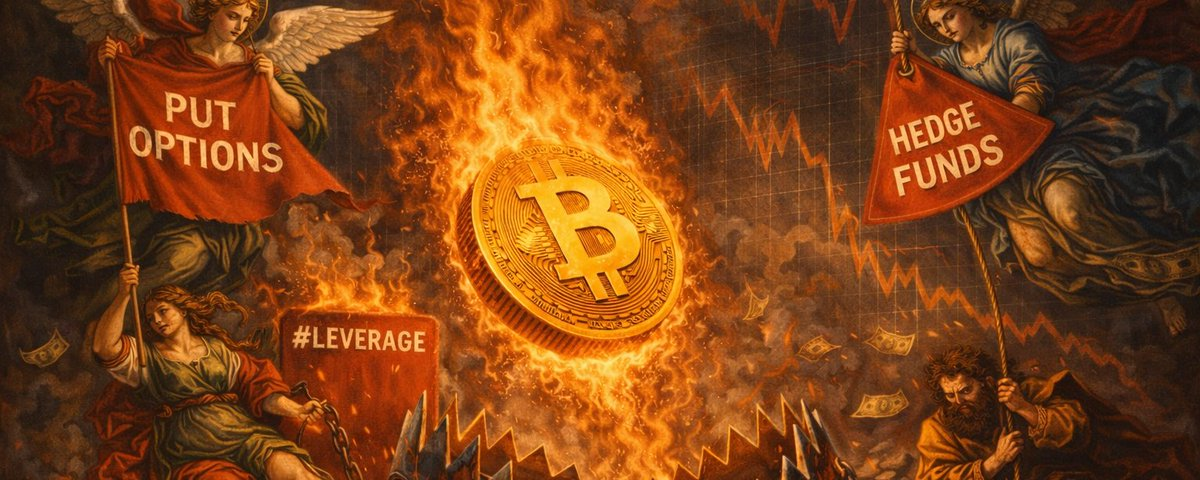Bloomberg: U.S. Regulatory Actions Are Driving Investors to More Friendly Overseas Crypto Centers
This article comes fromBloombergBloomberg
Odaily Translator | Nian Yin Si Tang

, by Emily Nicolle & Suvashree Ghosh
Odaily Translator | Nian Yin Si Tang
A flurry of U.S. investigations into the cryptocurrency industry is prompting battered digital asset firms to look to overseas financial centers, casting a shadow over America's status as the industry's cornerstone.
According to interviews with more than a dozen executives, former regulator officials, investors and analysts, Singapore, Hong Kong, Europe and Dubai are more attractive to cryptocurrency companies due to their regulatory efforts, tax advantages and A friendlier government stance.
Fund managers have decried what they call “enforcement regulation” in the U.S. — the idea that U.S. authorities are cracking down on rule-breaking activities rather than enacting new laws specifically for digital assets.
“Given the increased level of regulatory scrutiny and enforcement we’ve seen, some U.S. crypto investors are getting a little nervous,” said Zhuling Chen, CEO and founder of Singapore-based staking firm RockX. He has recently been fielding calls from investors including hedge funds, mutual funds and small centralized exchanges. “Any industry player who is interested and wants to stay in the cryptocurrency space will choose a more friendly country because the rules there are clear.”
In just over a week, the U.S. Securities and Exchange Commission (SEC) has taken a series of enforcement actions. On Feb. 9, the regulator announced a $30 million settlement with cryptocurrency exchange Kraken, ordering the company to suspend its so-called staking services. A few days later, stablecoin issuer Paxos Trust Co. announced it would stop issuing a stablecoin (BUSD) after receiving notice from the U.S. SEC of its intention to sue the company, following an order from state regulators.
Federal regulators this week indicted crypto industry fugitive Do Kwon and his company Terraform Labs, alleging fraud over the TerraUSD stablecoin that wiped more than $40 billion in market value last year. The U.S. SEC is also proposing changes to cryptocurrency custody rules that could make it harder for hedge funds to find companies to hold their digital assets.
Increased scrutiny has hit crypto assets. Bitcoin began a steady decline on news of the SEC's action against Kraken, before surging again on Thursday. Bitcoin fell 3% in New York on Friday morning, while other cryptocurrencies fell in tandem.
The flurry of activity has encouraged some to consider friendlier shores.
In Hong Kong, regulators last year announced plans to introduce a mandatory exchange licensing regime from June, while Dubai this month unveiled a final framework of rules governing cryptocurrency firms, allowing them to obtain full regulatory licenses in the city. Singapore is also strengthening its regulatory position, proposing stricter rules on cryptocurrency trading by retail investors following the collapse of local hedge fund Three Arrows Capital.
Some jurisdictions such as Dubai and Singapore also offer favorable tax rates, increasing their appeal to crypto entrepreneurs and investors.
secondary title
The "Changing and Changing" Rule
Cryptocurrency companies have long complained about vague regulations in countries that already have large, well-established financial industries. They point out that clear rules — even strict rules — are better than trying to follow general guidance, which risks creating an environment of changing rules that make it difficult for businesses to grow.
The problem is unlikely to improve anytime soon in the U.S., where U.S. lawmakers are currently unable to agree on several bills aimed at regulating the industry — even as sentiment toward cryptocurrencies soured amid the collapse of FTX in November There was no real progress after that.
Arca chief investment officer Jeff Dorman said new companies his digital asset investment arm is talking to or investing in "don't even want to deal with the United States."
“From a precedent standpoint, there are companies in the U.S. that have tried to comply with these laws, and those are the companies that are being targeted,” he said. “Operating in an unknown environment is very challenging.”
Sheila Warren, chief executive of the advocacy group Crypto Council for Innovation, said that by supporting law enforcement rather than adopting rules in unison with other regions, the U.S. left regulators and companies alike in “essentially a guessing game about what might happen next.” game".
Over the past year, the G20, the Financial Stability Board, and the Financial Action Task Force (FATF) have unilaterally recommended greater global coordination in the crypto space, including in emerging areas such as decentralized finance. This will make it harder for businesses to choose between jurisdictions based on regulatory convenience.
Meanwhile, progress is being made outside the U.S. in solidifying the new rules.
The European Union’s Markets in Cryptoassets (MiCA) bill — a key piece of legislation the bloc has been working on since 2020 — is due to be finalized in April. British Prime Minister Rishi Sunak has made a digital industry strategy a key part of his agenda, with the UK this month unveiling plans to bring crypto firms under existing financial sector laws.
Daniel Seifert, vice president of EMEA at Coinbase Global Inc., said the U.S. should follow the example of the European Union, the U.K. and the government of Dubai. In recent months, the cryptocurrency exchange has expanded its footprint in Europe, including appointing senior leadership and registering operations in the United Kingdom, Ireland, Italy and the Netherlands.
As part of a settlement with the U.S. SEC this month, Kraken shut down its U.S.-based staking offering. Despite the recent closure of operations in Japan and Abu Dhabi, the company remains focused on international growth. Former Gemini UK head Blair Halliday, who was hired by Kraken last October as its new country manager, said the UK is one of Kraken's largest markets internationally, with the company employing more than 200 people there.
In an interview in January, he pointed to the U.K. government’s pro-cryptocurrency stance and the country’s well-established fintech and financial services talent.
secondary title
Other regions catch up
To be sure, the home markets of Coinbase and Kraken remain by far the most well-funded destination for crypto firms, though other regions are catching up fast.
So far this year, U.S. companies have raised $449.3 million from venture capital investors, accounting for about 40% of total global financing so far this quarter, according to PitchBook data. That was down from 57 percent a year earlier, while Europe's share of funding more than tripled from 5.7 percent to around 25 percent.
Digital asset firms welcome rules, strict or not, as long as they are clear — a view that has not always been borne out.
In 2015, when the New York State Department of Financial Services (NYDFS) introduced a new licensing regime, cryptocurrency companies had announced that they would withdraw from New York State. But New York remains a hub for digital assets, with many companies still choosing the city as an important U.S. base.



